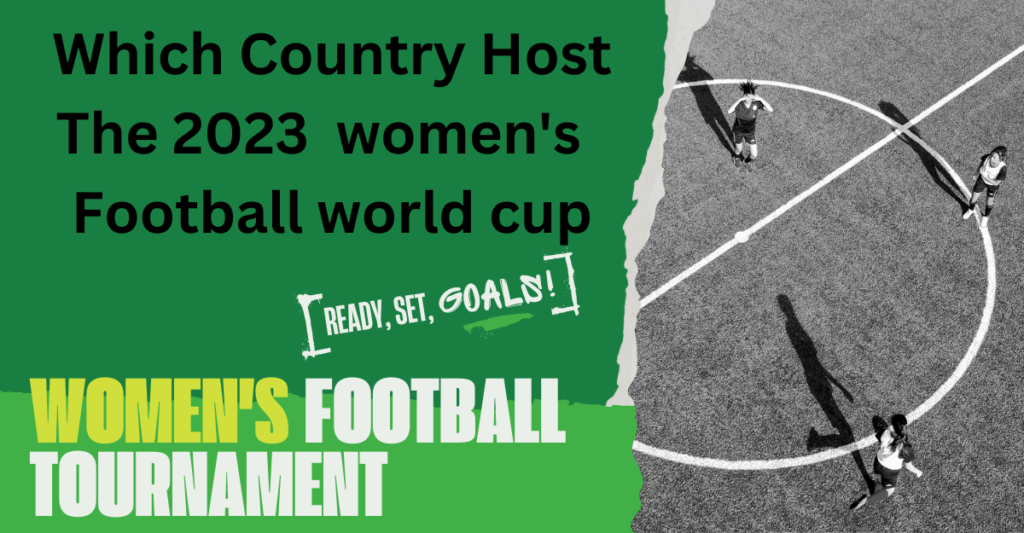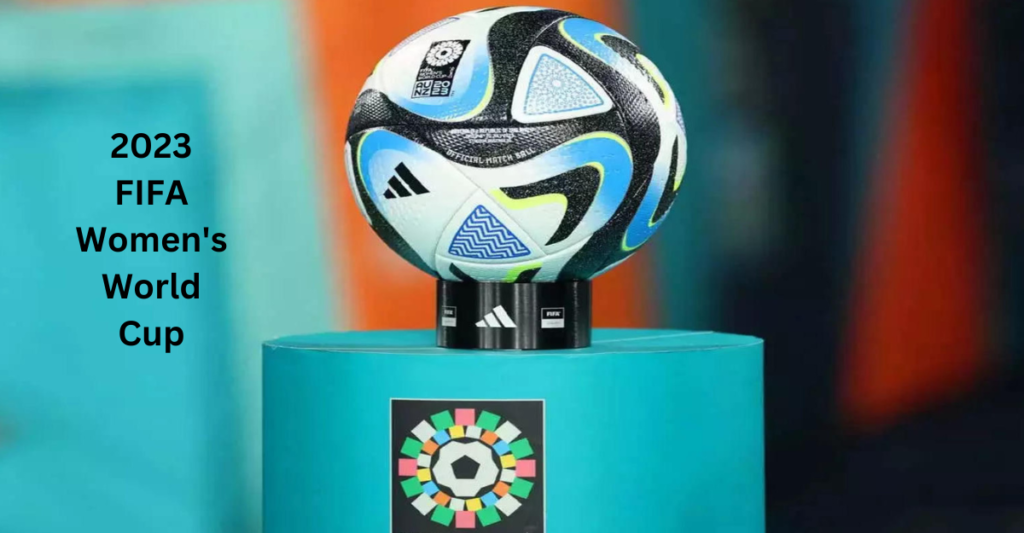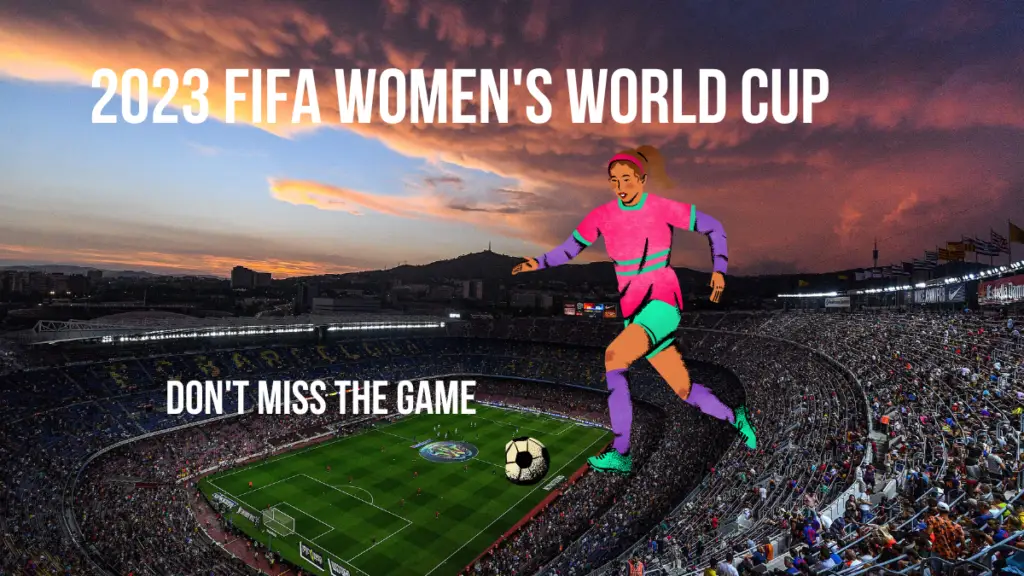“Kicking Stereotypes: Breaking Boundaries in the 2023 Women’s World Cup”
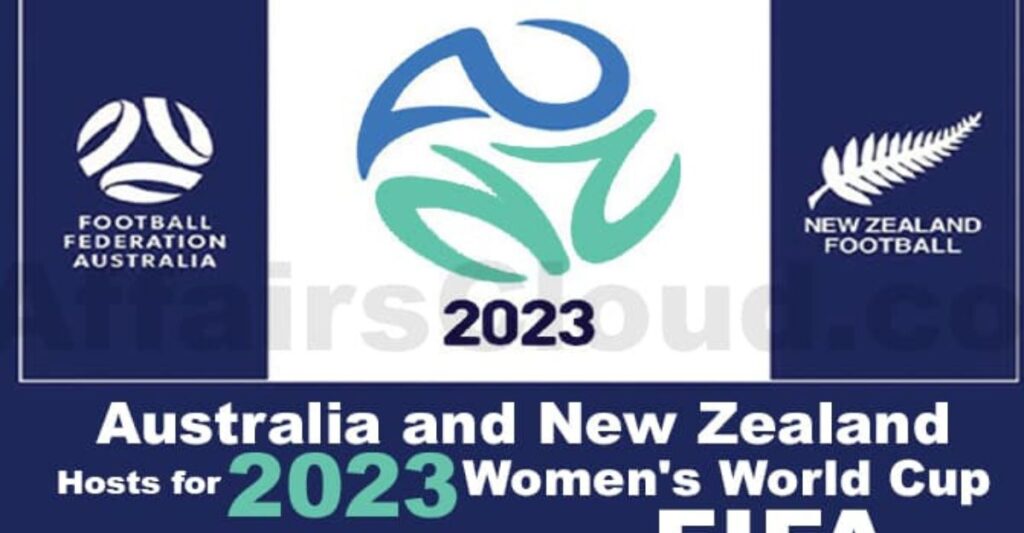
The 2023 Women’s World Cup marked a revolutionary and transformative moment for women’s football. This spectacular competition showcased the exceptional talent and resilience of female players worldwide, challenging stereotypes and advocating for equal pay. Held in the beautiful countries of Australia and New Zealand, the championship not only celebrated the beauty of the game but also ignited important discussions on representation and gender equality in sports. In this blog, we’ll delve into the major highlights of the 2023 Women’s World Cup, from the thrilling match-ups and venues to the remarkable teams and notable milestones that left an indelible mark on the tournament.
Table of Contents
which country will host the 2023 women’s world cup: Dates and Locations:
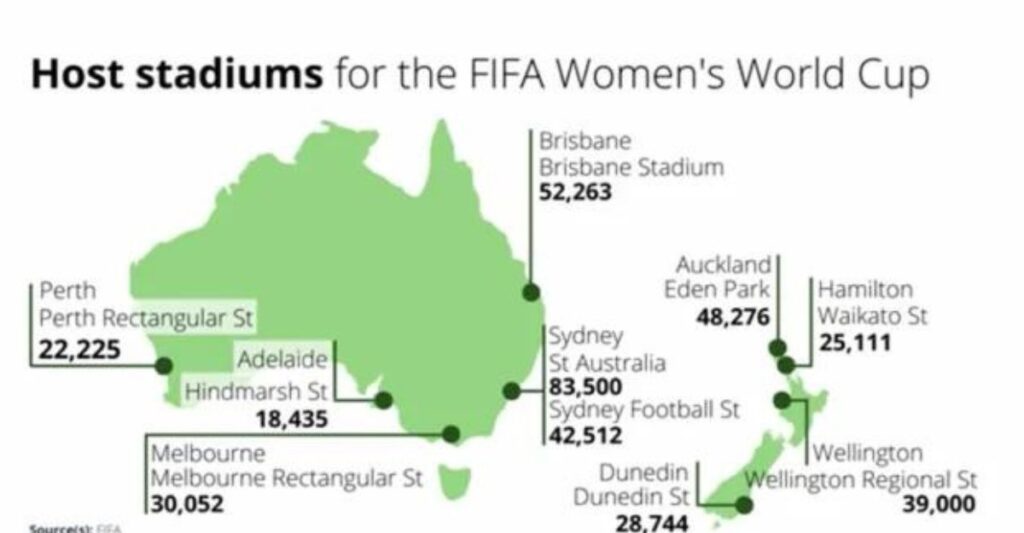
The Women’s World Cup took place from July 10 to August 20, 2023, in a remarkable joint effort by hosts Australia and New Zealand. Their collaboration saw the selection of renowned venues across both nations to host the thrilling matches. Iconic cities like Sydney, Melbourne, Brisbane, Auckland, and Wellington, among others, welcomed football enthusiasts to experience the excitement and passion of the tournament on their home soil.
Participating Teams:

A total of 32 national teams from diverse continents took part in the competition, showcasing the remarkable growth and heightened level of competition in women’s football on a global scale. The tournament exemplified the inclusivity and representation of talent from across the world, as teams were carefully chosen from all six FIFA confederations, bringing together a truly international and diverse array of football prowess.
Advocacy for Equal Pay:
Throughout the competition, players and spectators united in their advocacy for gender parity and equal pay in women’s football. Press conferences, interviews, and social media platforms were platforms where this important topic took center stage, becoming a recurring theme. The resounding support for the players’ desire for equal treatment and respect initiated crucial conversations surrounding the disparities between men’s and women’s football, highlighting the need for progress and change in the sport.
Record-Breaking Attendance:
The 2023 Women’s World Cup witnessed a momentous surge in women’s football supporters, breaking previous attendance records and marking historic turnouts. The strong show of attendance shattered myths surrounding the supposed lack of interest in women’s sports and instead showcased the undeniable and growing global appeal of women’s football. With passionate fans turning out in droves to support their favorite teams, the tournament highlighted the immense love and enthusiasm that exists for women’s football worldwide.
Rise of Emerging Talent

The tournament provided a stage for emerging talent to dazzle on the international scene. Young players seized the opportunity and showcased their remarkable skills, revealing the abundance of talent in women’s football. Football fans and scouts couldn’t help but be captivated by these rising stars as they displayed their prowess, vision, and unwavering determination, leaving a lasting impression on the world of women’s football.
Diverse Cultural Representation:
The tournament provided a stage for emerging talent to dazzle on the international scene. Young players seized the opportunity and showcased their remarkable skills, revealing the abundance of talent in women’s football. Football fans and scouts couldn’t help but be captivated by these rising stars as they displayed their prowess, vision, and unwavering determination, leaving a lasting impression on the world of women’s football.
Promoting Gender Equality:
The competition wholeheartedly embraced efforts to advance gender equality both on and off the pitch. Beyond the matches, a range of initiatives was undertaken, including community outreach programs, empowering lectures on women’s leadership, and insightful workshops on female empowerment. These endeavors underscored the tournament’s unwavering commitment to fostering positive social change and ensuring that women’s football becomes a catalyst for broader progress in promoting gender equality and empowerment worldwide.
Impactful Social Initiatives:
The 2023 Women’s World Cup went beyond the realm of sport and became a driving force for various social causes. Recognizing football’s potential to address significant global issues, the tournament utilized its widespread platform to advocate for important causes, including women’s rights, LGBTQ+ inclusivity, and environmental sustainability. By leveraging its global influence, the Women’s World Cup became a powerful agent of positive change, contributing to a brighter and more inclusive future for people worldwide.
Increased Broadcasting Reach:
The 2023 Women’s World Cup achieved unprecedented heights in terms of broadcast coverage and viewership, signifying a remarkable milestone for women’s football. The misconception that women’s sports are less commercially viable was unequivocally debunked, as the tournament garnered increased media attention, showcasing the growing interest and engagement of audiences worldwide. With soaring viewership, the Women’s World Cup demonstrated its immense popularity and the immense potential for women’s football to captivate and inspire fans across the globe.
Lasting Legacy and Future Prospects:
The 2023 Women’s World Cup achieved unprecedented heights in terms of broadcast coverage and viewership, signifying a remarkable milestone for women’s football. The misconception that women’s sports are less commercially viable was unequivocally debunked, as the tournament garnered increased media attention, showcasing the growing interest and engagement of audiences worldwide. With soaring viewership, the Women’s World Cup demonstrated its immense popularity and the immense potential for women’s football to captivate and inspire fans across the globe.
Conclusion:
Women’s football was advanced by the 2023 Women’s World Cup, a game-changing occasion. The event broke stereotypes and demonstrated the enormous potential of the women’s game through strong lobbying for equal pay, record-breaking attendance, and the growth of rising talent. The Women’s World Cup’s dedication to advancing gender equality, multicultural representation, and significant social activities have further established it as a symbol of progress in the sporting world. The tournament’s legacy kept women’s football on the rise and inspired new players, ensuring the future of the “beautiful game” was bright.
For more information on which country will host the 2023 women’s world cup. keep Reading
Author:allykazmi
